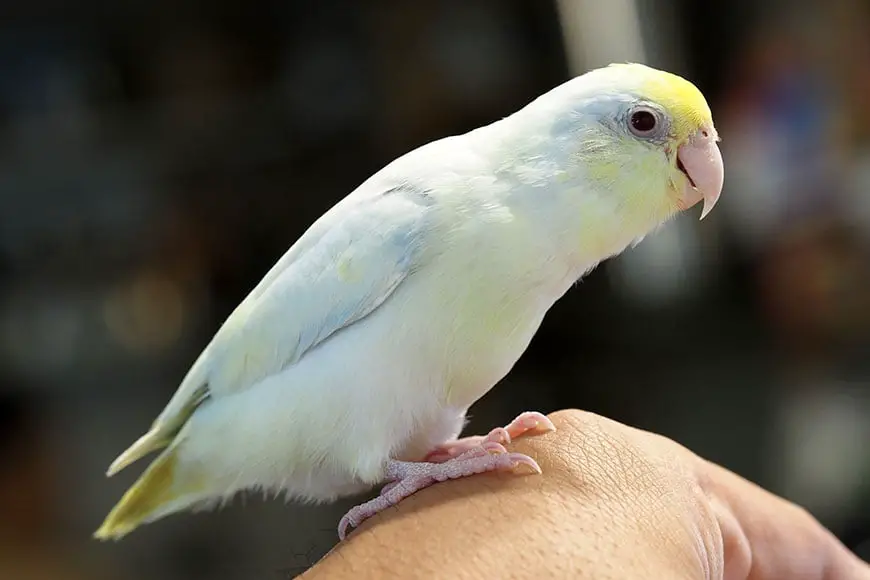Birds are some of the most intelligent and fascinating creatures on the planet, but sometimes they can develop a habit of biting their owners. This can be frustrating and even painful, especially if you are not sure why it is happening.
In this article, we will found out reasons why birds bite and provide tips on how to prevent and correct this behavior.

Understanding Bird Behavior
Before we can begin to solve the problem of biting, we need to understand why birds do it in the first place. Here are some of the most common reasons:
Fear and Insecurity
Birds can become afraid or insecure when they feel threatened, whether by a person, another animal, or a new environment. If they feel cornered or trapped, they may bite as a means of self-defense.
Territory and Dominance
Birds are very territorial animals and may become aggressive if they feel that their space is being invaded. They may also bite as a way of asserting dominance over their owners.
Hormonal Changes
Some birds, especially during breeding season, may experience hormonal changes that can make them more aggressive or territorial. This can be especially true of male birds.
Lack of Socialization and Training
Birds that have not been properly socialized or trained may not know how to behave around humans. They may see their owners as threats or as playthings, which can lead to biting.
Preventing and Correcting Biting Behavior
Now that we understand some of the reasons why birds bite, let’s explore some ways to prevent and correct this behavior.
Create a Safe Environment
Make sure your bird has a safe and comfortable living space, with plenty of room to move around and toys to keep them entertained. This will help prevent them from feeling threatened or territorial.
Establish Boundaries
Teach your bird that certain areas or objects are off-limits. For example, you may want to keep them away from your face or certain pieces of furniture. Use positive reinforcement techniques, such as treats and praise, to reward good behavior.
Socialize and Train Your Bird
Spend time socializing and training your bird, so they learn to trust and respect you. Start by offering them treats and talking to them in a calm and reassuring voice. Gradually increase the amount of time you spend interacting with them, and use positive reinforcement to encourage good behavior.
Address Hormonal Changes
If your bird is experiencing hormonal changes, you may need to adjust their diet, lighting, or environment to help them feel more comfortable. Consult with a veterinarian or bird behaviorist for advice on how to manage these changes.
Seek Professional Help
If your bird’s biting behavior is severe or persistent, you may need to seek help from a professional bird behaviorist or veterinarian. They can provide you with personalized advice and training techniques to help you and your bird live together more harmoniously.
Conclusion
Biting behavior in birds can be frustrating and even painful, but it is important to remember that it is usually a result of fear, insecurity, or a lack of training. By understanding why your bird is biting and taking steps to address the root cause of the behavior, you can create a safe and happy environment for both you and your feathered friend.
FAQs
Why does my bird only bite me and not other people?
This could be due to a variety of reasons, such as a lack of socialization or a perception that you are a threat to their territory. Try spending more time interacting with your bird and using positive reinforcement to encourage good behavior.
Can birds be trained not to bite?
Yes, birds can be trained not to bite using positive reinforcement techniques and consistent training.
What should I do if my bird bites me?
If your bird bites you, the first step is to remain calm and avoid reacting in a way that could further scare or provoke the bird. Slowly and gently remove your hand or body part from the bird’s mouth, and then take a break from interacting with the bird for a little while.
Can punishment be used to stop biting behavior in birds?
No, punishment should not be used to stop biting behavior in birds. It can actually make the behavior worse by reinforcing fear and aggression in the bird. Positive reinforcement techniques, such as treats and praise, should be used instead.
What kind of toys should I provide for my bird?
Birds need a variety of toys to keep them mentally and physically stimulated. Some good options include toys that encourage foraging, chewing, and climbing, as well as mirrors and swings. Be sure to rotate the toys regularly to keep your bird engaged and interested.
